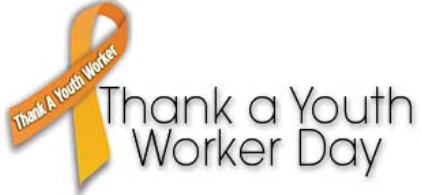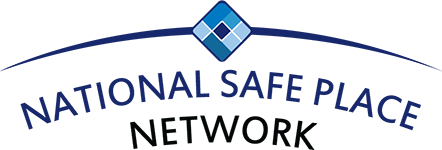ACF Request for Public Comment on Implementing a Clearinghouse of Evidence-based Practices - Elements for Consideration
The public comment period is an opportunity for professionals in the youth and family services field to advise and influence the Administration for Children and Families about how to implement and operate a new Clearinghouse of evidence-based practices mandated by the Family First Prevention Services Act of 2018 (FFPSA). The intent is to facilitate replication of effective programs and practices that work to keep families together while delivering positive outcomes for “children who are candidates for foster care or who are pregnant or parenting foster youth and the parents or kin caregivers of the children.” Following is a brief outline of elements for consideration:
Scope of services and practices to include in the Clearinghouse:
- Mental health and substance abuse prevention and treatment programs
- In-home parenting education, skills training, and counseling programs
- Kinship navigator programs
Definitions and criteria of proposed classifications for practices included in the Clearinghouse:
- Promising
- Supported
- Well supported
Procedures for:
- Identifying programs and services as candidates for review
- Prioritizing candidates for review
- Identifying relevant studies about candidates
- Systematic review and rating of evidence
- Classification of programs and services
Criteria for programs and services to review:
- Book, manual or other documentation defining proper implementation
- Target populations (particularly those in addition to but “similar” to children and families involved in the child welfare systems)
- Target outcomes related to mental health, substance abuse, safety, well being, etc. as well as research supporting recommendations of those outcomes
- Number of impact studies
- Actively in use
- Implementation and fidelity support
- Trauma-informed approach
- In-home delivery of services
Criteria for evidence for review:
- Quantitative impact study
- Target outcomes
- Studies conducted in U.S., U.K., Canada, New Zealand, or Australia
- Studies published in English
- Prepared or published in or after 1990
- Conducted in usual care or practice setting
Criteria for prioritizing studies for evaluation:
- Implementation period (particularly guidance around proposed “not more than 12 months”)
- Sample population (particularly those in addition to but “similar” to children and families involved in the child welfare systems)
Criteria for evaluating evidence:
- Favorable effects
- Unfavorable effects
- Sustained favorable effect
- Rigorous study design
- Rigorous study analysis
- Reliability, validity, and systematic administration of outcome measures
|
ACF Request for Public Comment on Implementing a Clearinghouse of Evidence-based Practices
Following enactment of the Family First Prevention Services Act of 2018 (FFPSA), the Administration for Children and Families (ACF) is seeking public comment regarding implementing the mandated Clearinghouse of evidence-based practices, including initial criteria for identifying, prioritizing, and reviewing potential programs and services. ACF is also seeking recommendations for programs and services as candidates for review.
National Safe Place Network understands how critical the voices of youth and family service professionals are in shaping public policy. We share this announcement with you to ensure youth and families receiving future services will have the benefit of your expertise to inform ACF’s implementation of this newly adopted legislation.
The federal registry entry for public comment is here: https://www.federalregister.gov/d/2018-13420. Comments must be submitted by July 22, 2018.
For a quick reference outline of elements for consideration, please click here.
Thank you for serving youth and families, and for advocating for procedures and practices that will best serve their needs. Together, we can! |
LGBTQ Youth: Resources for Providers, Families, and Young People
LGBT Pride Month recognizes the incredible impact that individuals, advocates, and allies have on the LGBT movement in the U.S. and around the world. While this month is a time to celebrate love, diversity, acceptance, and personal pride, it’s also an important time to recognize and spread the word about the difficulties affecting LGBTQ youth. Due to their gender identity or sexual orientation, young people face increased amounts of family rejection, abuse, and bullying. This causes LGBTQ youth to be at a greater risk for homelessness, sexual abuse, depression, and suicide. In fact,
according to a recent study from Chapin Hall at the University of Chicago, LGBTQ youth are 120% more likely to experience homelessness than non-LGBTQ youth. For more information about this issue and to help spread the word, we’ve rounded up some resources for youth and service providers:
Resources for Providers:
Resources for Youth:
Resources for Families:
|
Defend LGBTQ+ Families
When Governor Mary Fallin signed SB1140 last week, Oklahoma became the 8th U.S. state to enact legislation authorizing organizations that place children and youth in foster and adoptive homes to discriminate against LGBTQ families. Other states include Alabama, Texas, Mississippi, North Dakota, South Dakota, Virginia, and Michigan. The Kansas state legislature has passed such a bill which now awaits signature from Governor Jeff Colyer, and South Carolina and Colorado aren’t far behind.
These policies discriminate against LGBTQ families, expose youth in child welfare systems to messages of contempt, and deny children and youth in need of loving homes access to families that want to welcome them. If you are in Kansas, South Carolina or Colorado, the time to reach out to your state elected officials is now!
If you don’t live in one of these states, you can still be an ally. There is a national campaign supporting draft legislation known as the Every Child Deserves a Family (ECDF) Act. Learn about the bill, access resources for education and advocacy, and encourage your representatives in the U.S. House and Senate to support ECDF here: https://everychilddeservesafamily.com. |
Thank a Youth Worker Day 2018
Youth workers are the heart and soul of the field, and oftentimes face tremendous stress and emotional strain as they care for children and youth. The youth care workers contributing to your organization's success deserve appreciation and recognition. In honor of Thank a Youth Worker day on May 10, 2018, NSPN wants to share some ideas to show appreciation for the efforts of your staff and the positive impact they have on youth, families, and the community:
- Post "thank you" notes on staff doors.
- Add staff acknowledgments or "shout outs" during meetings.
- Give a day off when you can as a surprise.
- Call staff members and thank them for all they do (don't discuss other business).
- Plan a surprise for the team (pizza, ice cream, cake, etc.)
- Plant a tree(s) or flower(s) in honor of those you are thanking.
- Share handwritten cards or letters to show appreciation.
In addition to the ideas above, here are sample social media posts for Facebook and Twitter - thank your youth care workers where they may see it! Feel free to use the images below on social media.
Facebook:
[Agency Name] serves [number] of youth each year. We simply couldn't do this important, necessary work without the youth care workers at our organization who listen, support, and treat youth with respect day in and day out. Our youth care workers are superheroes! #TAYWD #ThankAYouthWorkerDay
Twitter:
Our youth care workers are truly superheroes. There aren't enough words to share our appreciation for all you do so we'll just share two - THANK YOU! #TAYWD

|
|
|





